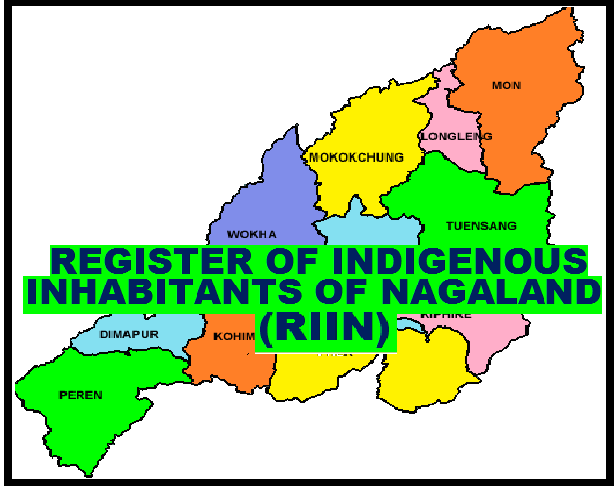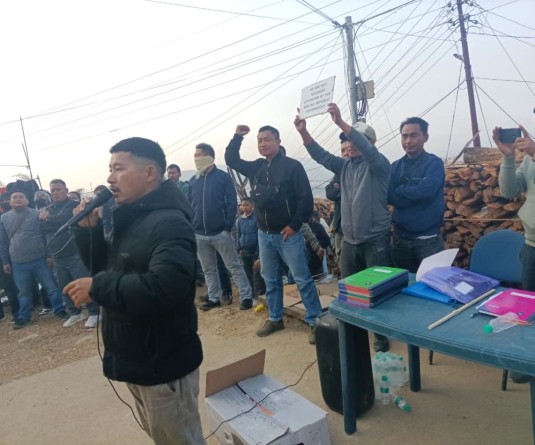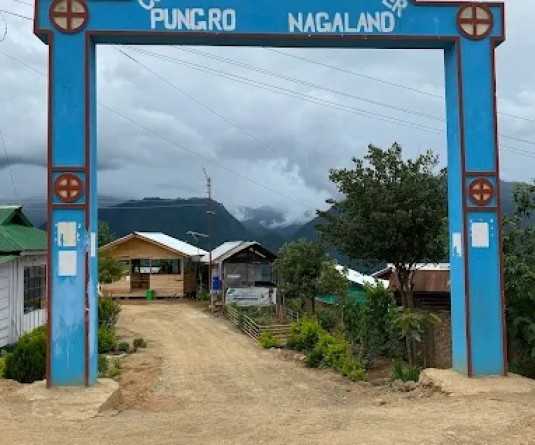JCPI submits terms of reference to RIIN Commission Nagaland

Dimapur, September 28 (MExN): The Commission on RIIN is tasked not only to identify and enumerate indigenous inhabitants “as is believed in certain quarters,” but also to enumerate the non-Indigenous residents of the state appropriately under various categories, stated the JCPI.
The State Government notified the appointment of a three-member Commission on Register of Indigenous Inhabitants of Nagaland (RIIN) with the objective of studying, examining and advising into all issues relating to RIIN” on July 27.
The exercise should be undertaken in such a manner that the “government with certain restrictions may allow genuine Indian citizens to work, earn and live despite the imposition of ILP in Dimapur,” stated the Joint Committee on Prevention of Illegal Immigrants’ (JCPI) inputs to the ‘Terms of Reference on RIIN’ submitted to the Commission
The JCPI’s submission to the Commission on September 17, released to the media, maintained that this would allow identification and deportation of “illegal immigrants” by the government through the Inner Line Permit (ILP) mechanism.
The JCPI’s submission appended by its Convenor JCPI K Ghokheto Chophy and Secretary Tia Longchar also informed the Commission that the Committee “has been spearheading” the ILP issue since August 8, 2018 and the “inputs have been arrived at after exhaustive study and deliberations within the JCPI and with tribal leaders.”
“It may seem overwhelming enough but our input is implementable,” it added, calling for implementation of the “RIIN in its totality” and not as a “piece-meal exercise.”
Among others, the JCPI claimed that “if the BEFR 1873 in its original form is implemented in Dimapur (and in the hill districts) in letter and in spirit not even a single non-Indigenous person can set up business in the state, let alone buy properties and live permanently in ILP notified Nagaland.”
It held that the Commission will have to decide on alleged “lakhs of non-Indigenous people in the state,” who have bought land and buildings, especially in Dimapur, in violation of the Nagaland Land and Revenue (Amendment) Act 1978. It added that the Commission must also enumerate the non-Indigenous residents of the state “appropriately under various categories.”
The JCPI further highlighted “some broad aspects with regard to RIIN in order for the Commission’s exercise to be free, transparent and impartial.”
One of the “aspects” emphasised was what it asserted as “non-negotiable” vis-a-vis December 1, 1963 as the cut-off year “to determine the indigenous status of a person.”
It recommended that Commission study “in all seriousness” the JCPI’s stand on the definition of the terms— “Native Naga” or “Nagas by Blood” and stated that it expects the Commission avoid any sort of controversy on this subject.
“The legal definition of ‘Who is a Naga’ is not acceptable – whether through customary law by way of conferring of so-called ‘Citizenship’ or through procurement of legal documents. The one and the only definition of “Who is a Naga” is someone who is born of true indigenous Naga parents.”
In addition, the JCPI declared its opposition to the empanelment of GBs (headmen) under Dimapur Sadar/urban by the district administration for assistance in the RIIN.
It justified this assertion based on a perceived notion that Dimapur has “Lakhs of citizens with doubtful citizenship” and allegations against urban GBs of “flagrantly issuing important documents allowing these elements to procure birth certificates, trade licenses, indigenous certificates, driving licenses, etc.”
“This demand to debar the GBs is non-negotiable...If at all assistance is required, the DUCCF (Dimapur Urban Colony Chairman Federation) representing 75 plus colonies of urban Dimapur may be enrolled for the exercise,” it added.






